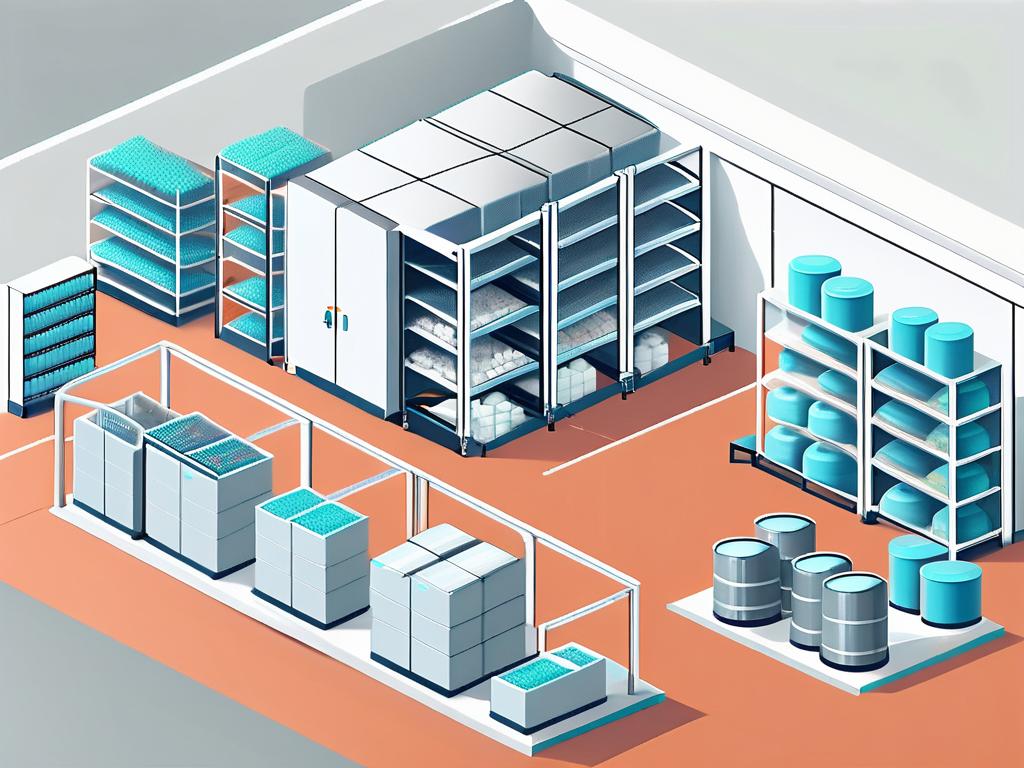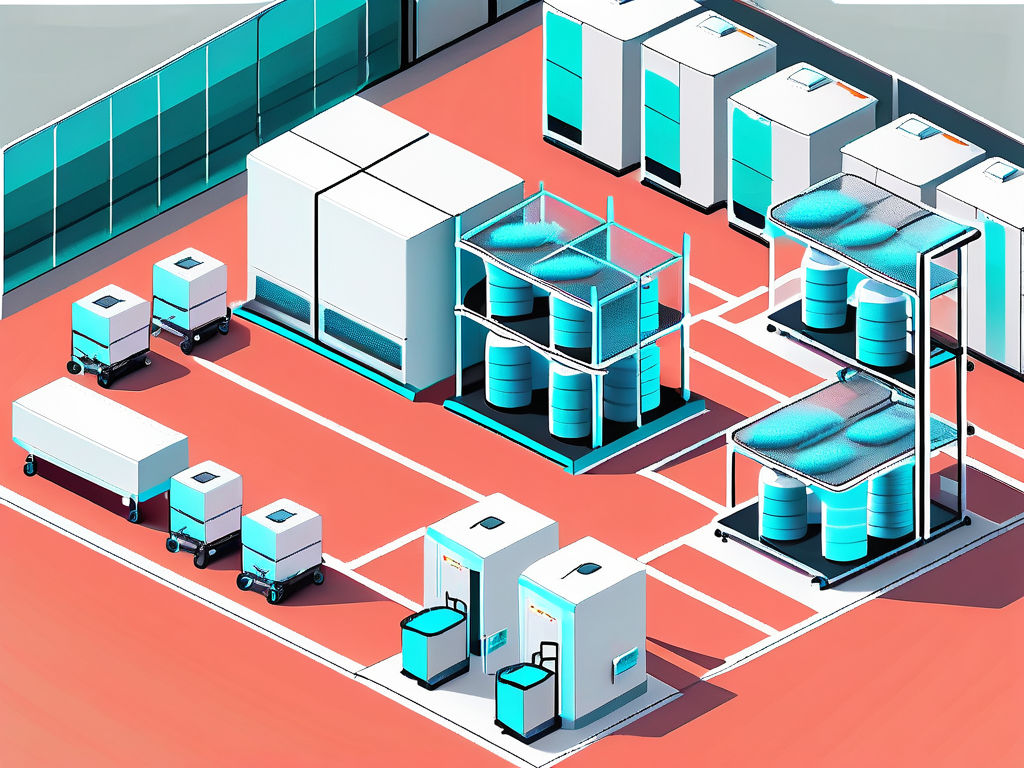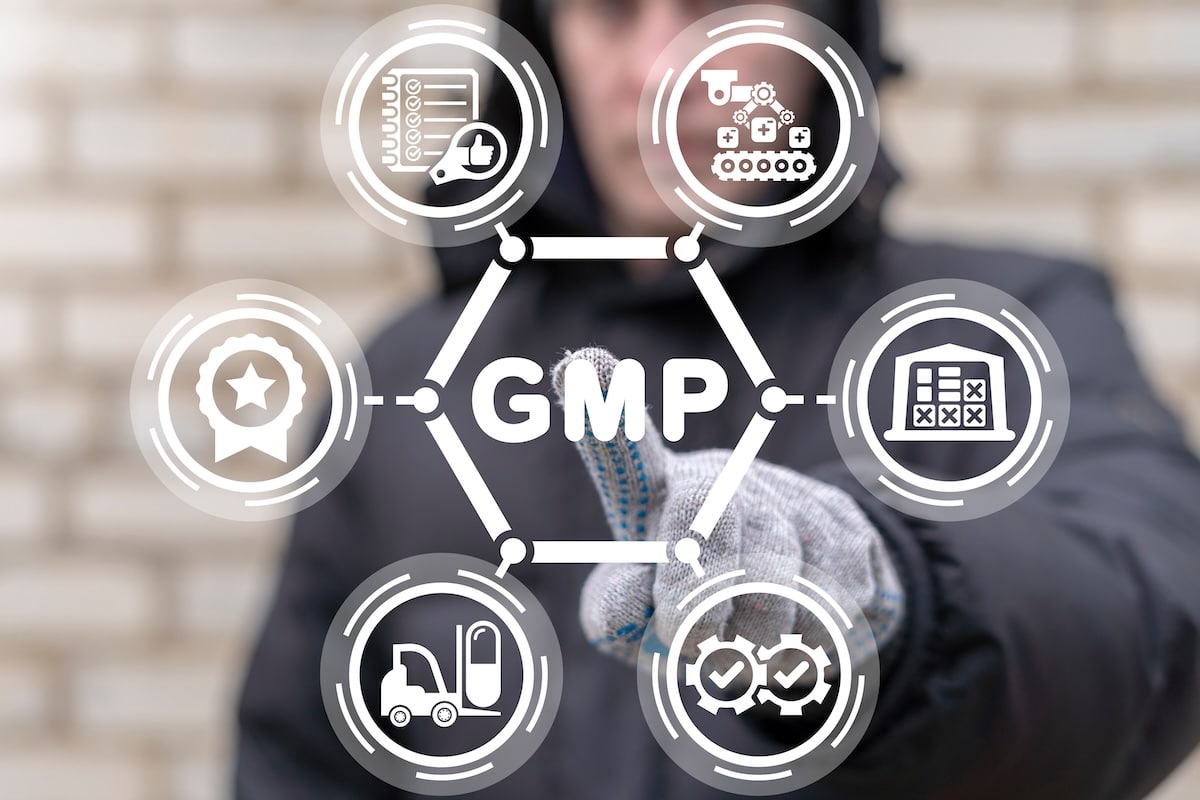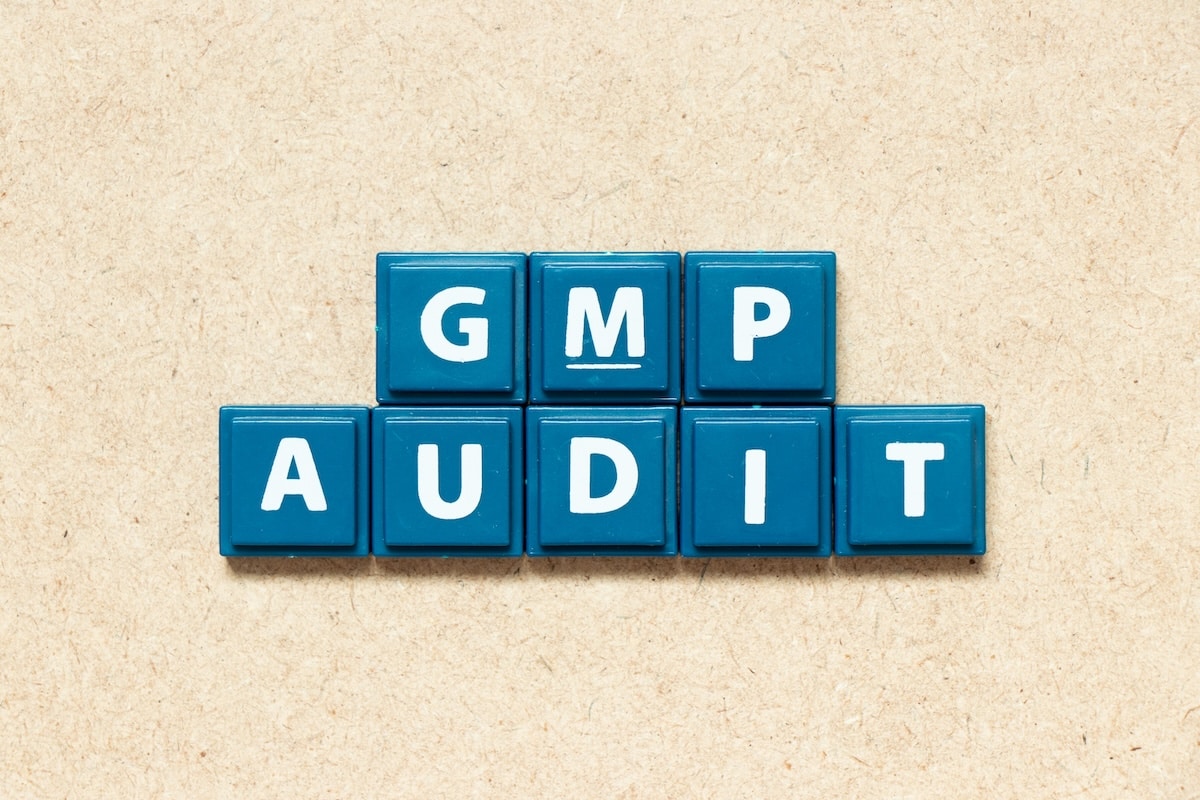Pharmaceutical storage and distribution play vital roles in ensuring the integrity and efficacy of medications. As the healthcare industry continues to evolve, optimizing these processes becomes increasingly important. With advancements in technology and the need for regulatory compliance, companies are constantly searching for innovative solutions to enhance pharmaceutical storage and distribution. In this article, we will explore the importance of these aspects in the healthcare system and discuss key factors, technological innovations, and regulatory compliance measures that can contribute to their optimization.
Understanding the Importance of Pharmaceutical Storage and Distribution
Pharmaceutical storage and distribution are interconnected processes that directly impact patient safety and access to medication. Effective storage ensures the stability of drugs, preventing degradation and maintaining their potency. On the other hand, efficient distribution systems guarantee timely delivery, preventing stockouts and ensuring medications reach patients when they need them the most.
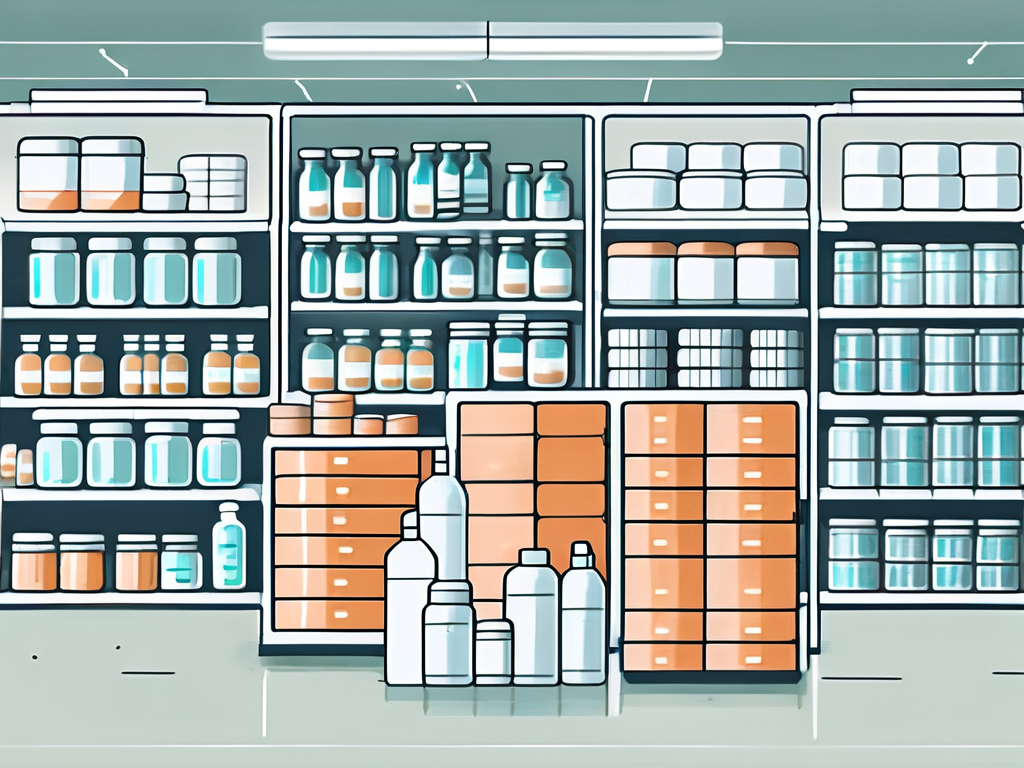
The Role of Pharmaceutical Storage
Proper storage conditions are critical in maintaining the safety and efficacy of pharmaceutical products. Temperature control is of paramount importance to prevent medications from being subjected to extreme heat or cold, which can compromise their integrity. Inadequate temperature management can lead to product deterioration, rendering them ineffective or even harmful to patients.
Implementing robust temperature monitoring systems helps maintain ideal conditions throughout the storage process. Automated alerts and real-time data enable prompt actions to mitigate risks, ensuring that medications are kept within specified temperature ranges.
Furthermore, it is not just temperature that needs to be controlled in pharmaceutical storage. Humidity levels also play a crucial role in preserving the quality of medications. Excessive humidity can lead to the growth of mold and bacteria, which can contaminate the drugs and pose serious health risks to patients. Therefore, storage facilities must have proper ventilation and humidity control measures in place to maintain optimal conditions.
The Impact of Efficient Distribution in Healthcare
Efficient distribution systems are essential for healthcare providers, pharmacies, and patients. Streamlined processes minimize delays and disruptions, enabling medications to reach their destinations efficiently. By reducing lead times and enhancing supply chain visibility, healthcare organizations can enhance patient care and optimize their operations.
Moreover, efficient distribution systems also contribute to reducing medication waste. With accurate demand forecasting and inventory management, healthcare providers can avoid overstocking or understocking medications, ensuring that the right amount of drugs is available at all times. This not only saves costs but also reduces the risk of medication shortages, which can have severe consequences for patients who rely on these medications for their well-being.
In addition, efficient distribution systems can also improve medication adherence. By ensuring that medications are delivered promptly and consistently, patients are more likely to adhere to their prescribed treatment plans. This, in turn, leads to better health outcomes and reduces the burden on healthcare systems.
Key Factors in Optimizing Pharmaceutical Storage
Several factors contribute to the optimization of pharmaceutical storage, ensuring the quality and integrity of medications throughout their lifecycle. Among these factors, temperature control and monitoring lie at the forefront.
Proper temperature control is essential for maintaining the stability of pharmaceutical products. Each medication has specific temperature requirements, and any deviation from these ranges can compromise their effectiveness. To address this, pharmaceutical companies have implemented sophisticated temperature control systems, such as temperature-controlled warehouses and refrigeration technologies. These advanced systems ensure that medications are stored at their prescribed temperatures, minimizing the risk of degradation or spoilage.
However, temperature control alone is not enough. Continuous monitoring is crucial to identify any potential deviations and take proactive measures. Real-time data collection and analysis provide valuable insights into temperature fluctuations, allowing companies to intervene promptly. By integrating temperature monitoring into their storage infrastructure, pharmaceutical companies can detect issues early on and take corrective actions, ensuring the integrity and potency of the medications.
Security Measures for Pharmaceutical Storage
Ensuring the security of pharmaceutical storage facilities is paramount to protect valuable medications and prevent unauthorized access. Pharmaceutical companies employ robust security measures to safeguard their inventory from theft, tampering, or unauthorized handling.
Access control systems play a vital role in restricting entry to authorized personnel only. These systems utilize advanced technologies such as biometric authentication or keycard access, ensuring that only authorized individuals can access the storage areas. Surveillance cameras are strategically placed throughout the facility, providing constant monitoring and recording any suspicious activities. In the event of an incident, these recordings serve as valuable evidence for investigations.
Moreover, alarm systems are installed to detect any unauthorized access attempts or breaches. These systems are equipped with sensors that trigger alarms and alert security personnel, enabling them to respond swiftly and prevent any potential theft or tampering. Regular audits are conducted to assess the effectiveness of security measures and identify any vulnerabilities that need to be addressed.
Pharmaceutical companies also prioritize staff training on security protocols to ensure that all employees are aware of the importance of maintaining a secure environment. By instilling a culture of security and vigilance, companies can reduce the risk of medication diversion and unauthorized access.
By implementing comprehensive security measures, pharmaceutical companies can instill confidence in patients and regulatory authorities. These measures not only protect valuable medications but also contribute to the overall integrity of the healthcare system. Patients can trust that the medications they receive are safe and effective, while regulatory authorities can have peace of mind knowing that pharmaceutical storage facilities meet stringent security standards.
Enhancing Distribution Solutions in the Pharmaceutical Industry
As the pharmaceutical industry grows more complex, enhancing distribution solutions becomes imperative. By incorporating advanced tracking systems and streamlining processes, healthcare organizations can optimize the movement of medications and improve patient care.
The distribution of pharmaceuticals is a critical aspect of the healthcare industry. It involves a complex network of stakeholders, including manufacturers, wholesalers, distributors, and pharmacies, all working together to ensure that medications reach the patients who need them. However, this intricate process is not without its challenges.
Implementing Advanced Tracking Systems
Advanced tracking systems enable real-time visibility into the location and status of pharmaceutical shipments. RFID (Radio-Frequency Identification) technology, for instance, allows automated tracking throughout the supply chain. This technology not only provides accurate information on inventory, but also enables precise ETA (Estimated Time of Arrival) predictions, reducing supply chain disruptions and improving resource planning.
Imagine a scenario where a hospital urgently needs a specific medication to save a patient’s life. With advanced tracking systems in place, healthcare professionals can easily locate the medication within the supply chain, ensuring that it is delivered promptly. This level of visibility and control not only saves lives but also enhances the overall efficiency of the distribution process.
Streamlining the Distribution Process
The distribution process involves several stakeholders, each with their own set of responsibilities and challenges. Streamlining this intricate network can significantly improve efficiency and reduce costs. Collaborative efforts, such as implementing cloud-based platforms and electronic data interchange (EDI), facilitate seamless communication and enable real-time information exchange.
Furthermore, route optimization algorithms help identify the most efficient routes for delivery, reducing transportation costs and ensuring timely medication availability. By streamlining the distribution process, pharmaceutical companies can enhance customer satisfaction and maintain a competitive advantage in the market.
It is important to note that enhancing distribution solutions in the pharmaceutical industry is not just about improving efficiency and reducing costs. It is also about ensuring that patients receive the medications they need in a timely manner. By incorporating advanced tracking systems and streamlining the distribution process, healthcare organizations can make a significant impact on patient care and well-being.
Technological Innovations in Pharmaceutical Storage and Distribution
To meet the evolving demands of the pharmaceutical industry, technological innovations continue to reshape the field. Automation and robotics, as well as the power of big data and analytics, are playing pivotal roles in enhancing pharmaceutical storage and distribution processes.
The Rise of Automation and Robotics
Automation and robotics have revolutionized pharmaceutical storage and distribution in recent years. Automated systems, such as robotic picking and sorting, reduce manual handling, decrease the risk of errors, and improve operational efficiency. Additionally, automated guided vehicles (AGVs) and autonomous drones offer rapid and precise delivery, ensuring timely access to medications.
The Influence of Big Data and Analytics
Big data and analytics have become indispensable tools for pharmaceutical companies, providing valuable insights into storage and distribution processes. Leveraging data analytics enables better demand forecasting, inventory management, and optimization of delivery routes. By harnessing the power of data, organizations can identify trends, mitigate risks, and make informed decisions to optimize their operations.
Regulatory Compliance in Pharmaceutical Storage and Distribution
Adhering to regulatory standards is critical to ensure the safety and integrity of stored medications. Good Distribution Practices (GDP) provide guidelines for the storage and transportation of pharmaceutical products, ensuring compliance with quality standards and regulatory requirements.
Adhering to Good Distribution Practices (GDP)
GDP encompasses a set of guidelines and quality assurance measures for pharmaceutical storage and distribution. Compliance with GDP includes accurate record-keeping, appropriate temperature control, secure packaging, and regular audits. By adhering to these practices, pharmaceutical companies uphold product quality, mitigating the risk of compromised medications reaching patients.
Understanding Storage and Distribution Regulations
Pharmaceutical storage and distribution are subject to numerous regulations to safeguard public health. Understanding and complying with these regulations is crucial to avoid penalties, maintain licensing, and ensure patient safety. Regular education and training for employees on storage and distribution regulations are essential to meet compliance requirements.
In conclusion, optimizing pharmaceutical storage and distribution solutions is vital in ensuring the safety, efficacy, and accessibility of medications. Temperature control, security measures, and advanced tracking systems contribute to effective storage and distribution. Technological innovations, such as automation, robotics, big data, and analytics, drive efficiency and improve patient care. Regulatory compliance, including adherence to GDP and storage and distribution regulations, is paramount for maintaining product integrity. By integrating these elements, the pharmaceutical industry can optimize its processes and provide better healthcare outcomes for patients.


